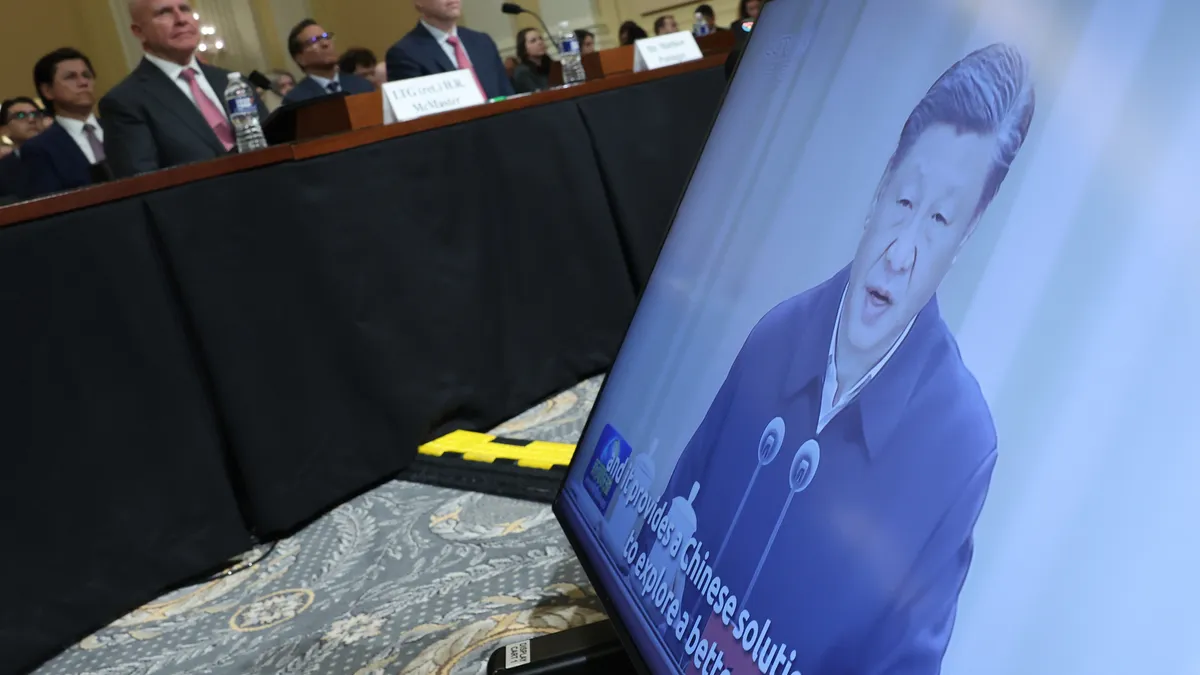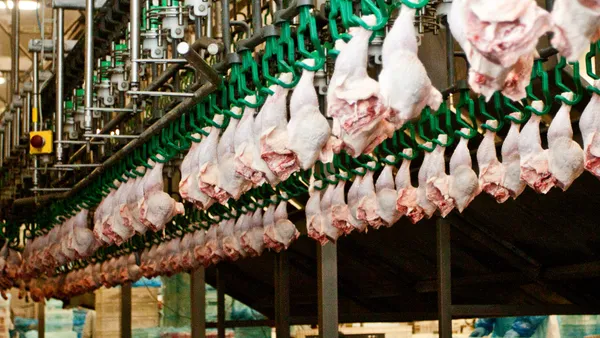Dive Brief:
- U.S. lawmakers on Tuesday called on the Biden administration to reset the country's economic relationship with China and revoke low tariff rates set more than two decades ago.
- An expansive report from the House Select Committee on the Chinese Communist Party issued a host of recommendations to sever trade and reduce U.S. dependence on China for critical minerals and other goods.
- Lawmakers noted that a tougher stance on China could bring potential consequences to the agriculture industry. Short-term costs, they said, would "pale in comparison to the long-term consequences of failing to act now."
Dive Insight:
Bipartisan momentum to take action against China stands to reignite trade tensions and leave farmers once again caught up in the fallout.
Farmers are still reeling from retaliatory tariffs imposed by China in response to the Trump administration's trade war beginning in 2018. As the world's top agricultural importer, China is an important market for U.S. farmers.
As part of the World Trade Organization, China benefits from the same low tariff rate as all other members. Severing economic ties and removing the country's so-called most favored nation status would "decimate agriculture exports," Suzanne Shirbroun, an Iowa soybean farmer and president of the Iowa Soybean Association, told congressional members in August.
"While there is little doubt that China has targeted the United States' intellectual property and engaged in unfair trade practices, let's proceed cautiously," Shirbroun said at a committee hearing on agricultural technology theft. "There is not another market that can completely replace the Chinese market for the American soybean farmer."
China's retaliatory tariffs reduced U.S. agriculture exports by $26 billion from mid-2018 to the end of 2019. Soybeans accounted for the largest share of total trade loss, making up nearly 71% of annual losses, or $9.4 billion.
In its report, the select committee called on the U.S. Department of Agriculture to find new markets to replace any losses that could stem from new trade action against China. It also directed Congress to consider additional appropriations to offset retaliation for farmers, harkening back to former President Donald Trump's $28 billion farm bailout.
Lawmakers claim in the report that China has undercut the competitiveness of U.S. firms as part of a "multidecade campaign of economic aggression." To safeguard agriculture supply chains, the committee recommended the USDA assess U.S. dependency on critical agricultural products or inputs "that could be exploited" by China or other foreign adversaries.
The report also suggested adding the Secretary of Agriculture as a voting member of the Committee on Foreign Investment (CIFUS) for cases that involve farmland or agriculture technology. CIFUS reviews foreign investments, advising the president on whether to suspend or prohibit transactions that could threaten national security.
"We must make clear-eyed choices now in the interest of America’s long-term economic and national security," the report said.











